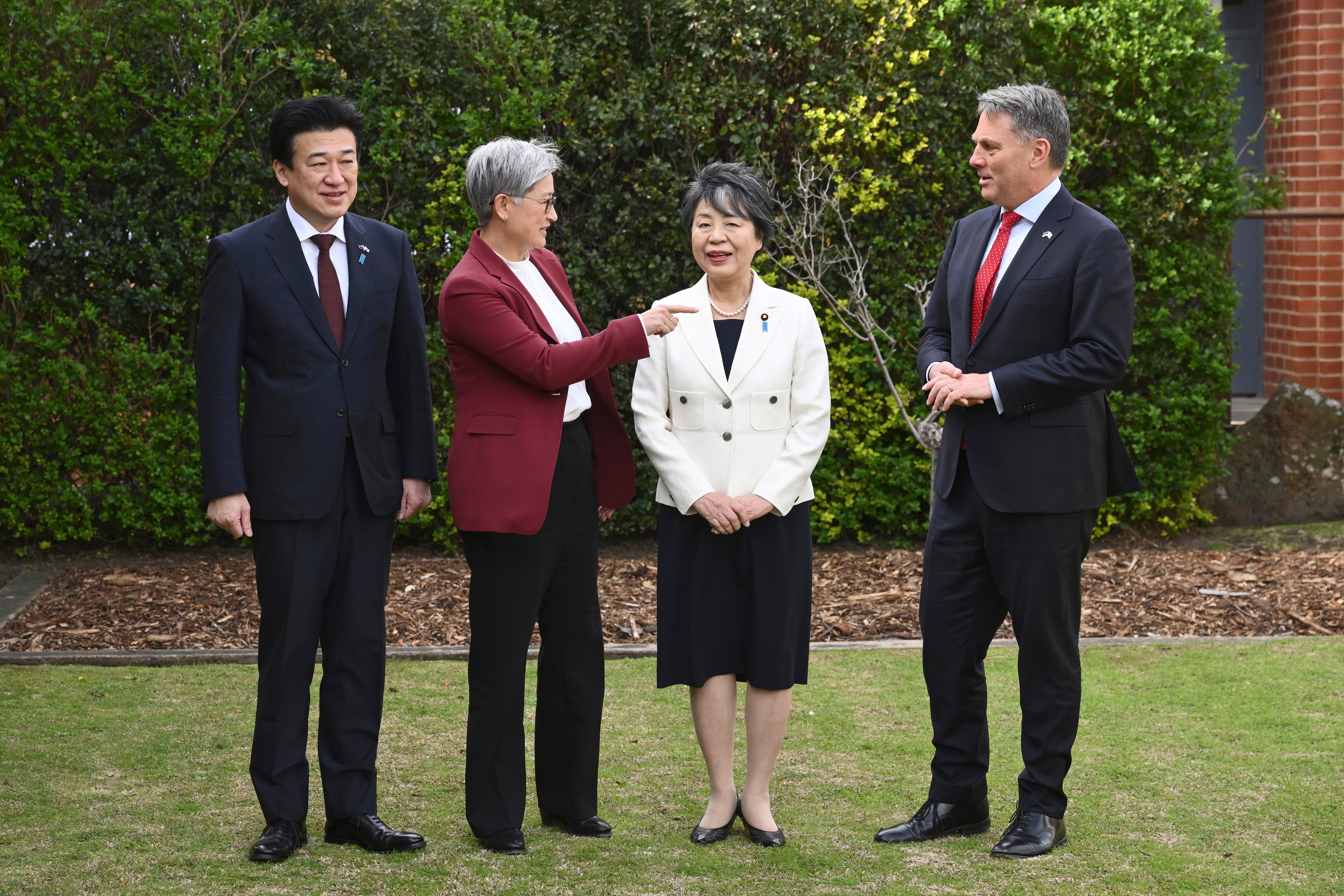Japan and Australia agree to increase joint military training
Japan and Australia have agreed to increase joint military training exercises as their government ministers shared concerns over China’s recent incursions into Japanese airspace and territorial waters

Japan and Australia agreed on Thursday to increase joint military training exercises as their government ministers shared concerns over China’s recent incursions into Japanese airspace and territorial waters.
Japanese Foreign Minister Yoko Kamikawa and Japanese Defense Minister Minoru Kihara met for a regular summit with their Australian counterparts, Foreign Minister Penny Wong and Defense Minister Richard Marles in the Australian coastal town of Queenscliff.
They discussed greater security cooperation in the context of the ministers’ shared support for peace and stability in the Taiwan Strait and concerns over China’s increasingly aggressive territorial claims in the South and East China Seas, Wong said.
The ministers agreed on more engagement in training exercises involving the two air forces after F-35A Lighting II stealth fighters from both countries joined in combat training over Japan last year in Exercise Bushido Guardian, Marles said.
Next year, Australia will participate for the first time in Orient Shield, the largest annual field training exercise between the U.S. Army and Japan Ground Self-Defense Force.
Australia and Japan also plan to involve the Japanese Amphibious Rapid Deployment Brigade, a marine unit of the Japan Self-Defense Forces, in annual training rotations of U.S. Marines in the northern Australian city of Darwin.
China’s increasingly assertive activity around Japanese waters and airspace has caused unease among Japanese defense officials, who are also concerned about the growing military cooperation between the Chinese and Russian air forces.
Japan lodged a formal protest through the Chinese Embassy in Tokyo against what it called an incursion by a Chinese survey ship in its waters last weekend.
This followed Tokyo’s protest after a Chinese military aircraft briefly entered Japan’s southwestern airspace on Aug. 26. It was the first time the Japan Self-Defense Forces detected a Chinese military aircraft in Japan’s airspace.
Chinese Foreign Ministry spokesperson Lin Jian said later his country had “no intention” to violate any country’s airspace.
Kihara confirmed the incidents were discussed with the Australian counterparts.
“We have shared very strong concern over these incidents and, for the East China Sea and South China Sea, any attempts to unilaterally change the status quo by force or by coercion, we have put forward our strong opposition,” Kihara told reporters through an interpreter.
Marles said he and Wong “did express our support for Japanese sovereignty in that moment.”
“It really underlined our shared commitment to asserting the rules-based order in the Indo-Pacific, in our neighborhood,” Marles said.
“The countries of the region and indeed the world want to be in a world where disputes are resolved not by power and might but by reference to international law,” Marles added.
Bookmark popover
Removed from bookmarks